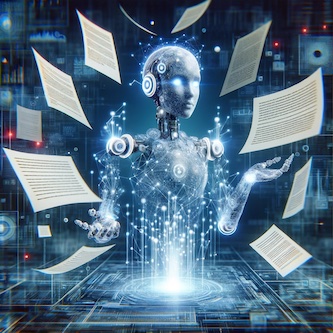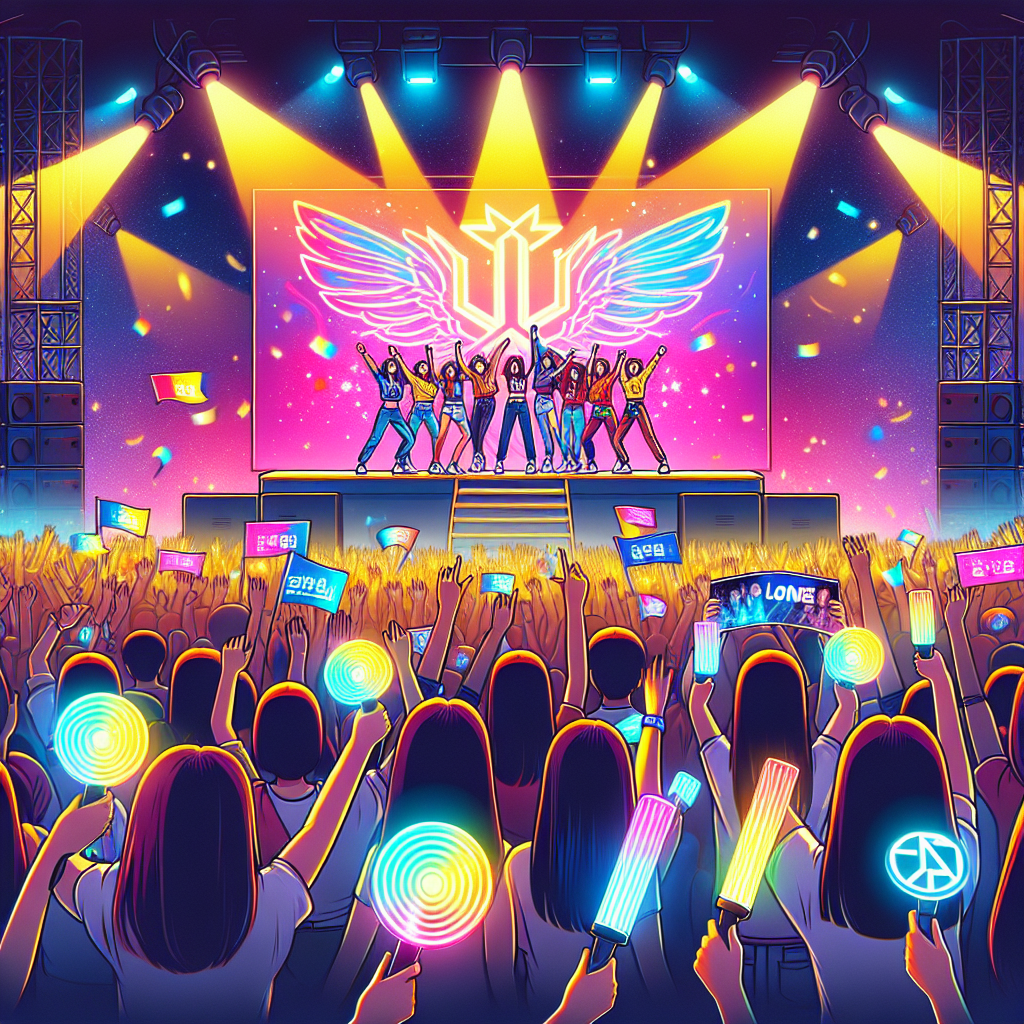AI, or artificial intelligence, is changing the way lawyers work, especially in contract negotiations. Luminance, a company based in the UK, is leading the charge with its new tool called Luminance Autopilot. This tool uses AI to make contract reviews faster and easier, so lawyers can focus on the important parts of their work.
In a demonstration, the Autopilot quickly reviewed and changed parts of a non-disclosure agreement, like the contract term and liability cap. When two AI systems negotiated, they reached an agreement in just a few minutes, cutting down on delays caused by humans.
The Autopilot is an improvement on Luminance’s copilot tool, which helps lawyers by highlighting and rewriting parts of contracts. It uses a large language model trained on over 150 million legal documents, so it can learn from a company’s contracts and give better suggestions.
Even though AI is changing the legal world, most people agree that human expertise is still important in contract negotiations. Connagh McCormick, a general counsel, says it’s crucial for humans to review and sign contracts. The president of the Law Society of England and Wales also thinks AI can’t replace the knowledge of qualified professionals.
As technology gets better, the role of lawyers and the skills they need will change. AI can make processes faster and give lawyers more time for important work, but human judgment and negotiation skills will still be really important in law.
Original news source: Can AI cut humans out of contract negotiations? (BBC)
Listen
Slow
Normal
Fast
Group or Classroom Activities
Warm-up Activities:
– News Reporter Role-play
Instructions: Students are divided into groups of three. One student is the AI, another is the lawyer, and the third is the news reporter. The AI explains the new technology (Luminance Autopilot), the lawyer expresses their perspective on AI in their work, and the reporter interviews both, capturing the key points of the article. They then present their ‘news report’ to the class, summarizing the article’s content in an engaging format.
– Opinion Poll
Instructions: Write a series of statements about the use of AI in legal work on the board (e.g., “AI can replace human lawyers in contract negotiations”). Students move around the room to different corners or areas designated as “Strongly Agree,” “Agree,” “Disagree,” and “Strongly Disagree.” After each statement, students discuss their reasons with those in the same area and then share a summary with the class, sparking a debate about the article’s points.
– Vocabulary Pictionary
Instructions: Select key vocabulary from the article (e.g., artificial intelligence, contract negotiations, liability cap). One student from each team comes to the board and draws a representation of a word without writing any letters or speaking. Their team has to guess the word within a time limit. Rotate the drawing student each round to ensure everyone participates.
– Synonym Challenge
Instructions: Write down challenging words from the article (e.g., crucial, expertise, improvement). Students work in pairs or small groups to come up with synonyms for each word without using dictionaries initially. Afterward, they can check their answers and find additional synonyms using a dictionary or thesaurus, discussing the nuances between the words.
– Future Predictions
Instructions: Students work in pairs to discuss and write down their predictions about the future of AI in the legal field based on the information from the article. They should consider questions like: How will AI continue to change the legal profession? What skills will lawyers need in the future? After sharing their predictions with the class, they can debate the likelihood and possible implications of these predictions.
Comprehension Questions:
1. What is the main purpose of Luminance Autopilot in the context of legal work?
2. How did the Autopilot improve the process of contract negotiations during the demonstration?
3. What is the difference between Luminance’s Autopilot and its copilot tool?
4. How has the Autopilot been trained to assist in contract reviews?
5. Why do people believe that human expertise cannot be completely replaced by AI in legal matters?
6. What are the thoughts of Connagh McCormick regarding the use of AI in contract negotiations?
7. What is the opinion of the president of the Law Society of England and Wales about AI in the legal profession?
8. According to the article, how might the advancement of AI technology alter the roles and skills of lawyers in the future?
Go to answers ⇩
Listen and Fill in the Gaps:
AI, or artificial intelligence, is changing the way lawyers work, especially in contract negotiations. Luminance, a company based in the UK, is leading the (1)______ with its new tool called Luminance Autopilot. This tool uses AI to make contract (2)______ faster and easier, so lawyers can (3)______ on the important parts of their work.
In a (4)______, the Autopilot quickly reviewed and changed parts of a non-disclosure agreement, like the (5)______ term and liability cap. When two AI systems (6)______, they reached an agreement in just a few (7)______, (8)______ down on delays caused by humans.
The Autopilot is an improvement on Luminance’s copilot tool, which helps lawyers by highlighting and rewriting parts of contracts. It uses a large language (9)______ trained on over 150 million (10)______ documents, so it can learn from a company’s contracts and give better suggestions.
Even though AI is (11)______ the legal world, most (12)______ agree that human expertise is still important in contract negotiations. Connagh McCormick, a general counsel, says it’s crucial for humans to review and sign contracts. The president of the Law Society of England and Wales also thinks AI can’t replace the knowledge of qualified (13)______.
As technology gets better, the role of lawyers and the skills they need will (14)______. AI can make processes faster and give lawyers more time for important work, but human (15)______ and (16)______ skills will still be really important in law.
Go to answers ⇩
Discussion Questions:
Students can ask a partner these questions, or discuss them as a group.
1. What is artificial intelligence (AI) and have you ever used any AI tools before?
2. How would you feel if a robot did your homework for you?
3. Do you think machines could ever replace your teachers? Why or why not?
4. What do you think are the most important skills for a lawyer to have?
5. Do you like the idea of technology making jobs easier? Why or why not?
6. Have you ever had to negotiate something? What was it like?
7. Do you think AI could help you in your future job? In what ways?
8. How do you think people should balance using AI and keeping their skills sharp?
9. When it comes to making big decisions, do you trust machines or humans more? Why?
10. Can you think of any other jobs that AI might change a lot in the future?
11. Do you believe there are things that humans can do that AI will never be able to do? What are they?
12. Would you be interested in a career in law? How do you think AI might affect your decision?
13. Do you think relying on AI too much could be a problem? Why or why not?
14. How do you feel about the idea of two AI systems negotiating an agreement without human help?
15. What do you think schools should teach about AI and its impact on future careers?
Individual Activities
Vocabulary Meanings:
Match each word to its meaning.
Words:
1. AI
2. Luminance
3. Autopilot
4. contract
5. negotiation
6. expertise
7. counsel
8. profession
Meanings:
(a) A tool that uses AI to review and change contracts
(b) Specialized knowledge and skills in a particular field
(c) Discussion to reach an agreement
(d) Technology that can think and learn like humans
(e) A job that requires special training and education
(f) A lawyer who gives advice and represents clients
(g) A company in the UK that is a leader in AI for law
(h) An agreement between two or more parties
Go to answers ⇩
Multiple Choice Questions:
1. What is the name of the company leading the charge with its new tool called Luminance Autopilot?
(a) Brightness
(b) Radiance
(c) Brilliance
(d) Luminance
2. What does Luminance Autopilot use to make contract reviews faster and easier?
(a) AI
(b) AR
(c) VR
(d) MR
3. What did the Autopilot quickly review and change in a demonstration?
(a) Rental agreement
(b) Loan agreement
(c) Non-disclosure agreement
(d) Employment agreement
4. How long did it take for two AI systems to reach an agreement in a demonstration?
(a) A few hours
(b) A few minutes
(c) A few days
(d) A few weeks
5. What does Luminance’s copilot tool do to help lawyers?
(a) Create new contracts from scratch
(b) Highlight and rewrite parts of contracts
(c) Send emails to clients
(d) Schedule meetings
6. How many legal documents is the large language model trained on for Luminance’s copilot tool?
(a) Over 150 million
(b) Over 100 million
(c) Over 200 million
(d) Over 50 million
7. Who thinks it’s crucial for humans to review and sign contracts, despite the use of AI?
(a) The president of the Law Society of England and Wales
(b) Both of the above
(c) None of the above
(d) Connagh McCormick
8. What will still be really important in law, even as technology improves?
(a) AI taking over completely
(b) Paper contracts
(c) Human judgment and negotiation skills
(d) Email negotiations
Go to answers ⇩
True or False Questions:
1. The president of the Law Society of England and Wales also thinks that AI cannot replace the knowledge of qualified professionals in the legal field.
2. As technology advances, the role of lawyers and the skills they need will change, with AI making processes faster but human judgment and negotiation skills remaining important in law.
3. Connagh McCormick, a general counsel, believes it’s unimportant for humans to review and sign contracts despite the advancements in AI.
4. Luminance’s Autopilot is an improvement on their copilot tool, which helps lawyers by highlighting and rewriting parts of contracts.
5. The Autopilot is untrained on over 150 million legal documents, preventing it from learning from a company’s contracts and providing better suggestions.
6. The Autopilot uses AI to overlook and ignore parts of contracts, making the process slower and increasing delays caused by humans.
7. While AI is changing the legal world, most people agree that human expertise is still crucial in contract negotiations.
8. Luminance, a UK-based company, has failed to develop an AI tool called Luminance Autopilot to help lawyers with contract negotiations.
Go to answers ⇩
Write a Summary:
Write a summary of this news article in two sentences.
Check your writing now with the best free AI for English writing!
Writing Questions:
Answer the following questions. Write as much as you can for each answer.
Check your answers with our free English writing assistant!
1. What is the name of the new AI tool developed by Luminance, and what is its main purpose?
2. During the demonstration, what tasks did the Autopilot perform on the non-disclosure agreement?
3. How does the Autopilot tool differ from Luminance’s previous tool, the copilot?
4. According to Connagh McCormick, why is human involvement still necessary in contract negotiations despite the advances in AI?
5. What are the expected changes in the role of lawyers and the skills they need as AI technology improves?
Answers
Comprehension Question Answers:
1. What is the main purpose of Luminance Autopilot in the context of legal work?
The main purpose of Luminance Autopilot is to speed up contract reviews and make them easier, so lawyers can concentrate on more important parts of their work.
2. How did the Autopilot improve the process of contract negotiations during the demonstration?
During the demonstration, the Autopilot quickly reviewed and made changes to a non-disclosure agreement, such as updating the contract term and liability cap, which allowed two AI systems to reach an agreement in just a few minutes, much faster than humans usually would.
3. What is the difference between Luminance’s Autopilot and its copilot tool?
Luminance’s Autopilot is an advanced version of its copilot tool. While the copilot helps lawyers by highlighting and rewriting parts of contracts, the Autopilot goes further by learning from a company’s contracts to provide better suggestions.
4. How has the Autopilot been trained to assist in contract reviews?
The Autopilot has been trained on a large language model that includes over 150 million legal documents, allowing it to learn and give improved suggestions based on a company’s previous contracts.
5. Why do people believe that human expertise cannot be completely replaced by AI in legal matters?
People believe human expertise can’t be fully replaced by AI because human judgment and the knowledge of qualified professionals are crucial for reviewing and signing contracts, which includes understanding complex legal nuances that AI might not fully grasp.
6. What are the thoughts of Connagh McCormick regarding the use of AI in contract negotiations?
Connagh McCormick believes that it’s essential for humans to review and sign off on contracts, indicating that while AI can assist, the final decisions should be made by people.
7. What is the opinion of the president of the Law Society of England and Wales about AI in the legal profession?
The president of the Law Society of England and Wales believes that AI cannot replace the unique knowledge and skills of qualified legal professionals.
8. According to the article, how might the advancement of AI technology alter the roles and skills of lawyers in the future?
The advancement of AI technology might change the roles and skills of lawyers by making certain processes faster and allowing lawyers to spend more time on important tasks that require human judgment and negotiation skills, which are still very important in law.
Go back to questions ⇧
Listen and Fill in the Gaps Answers:
(1) charge
(2) reviews
(3) focus
(4) demonstration
(5) contract
(6) negotiated
(7) minutes
(8) cutting
(9) model
(10) legal
(11) changing
(12) people
(13) professionals
(14) change
(15) judgment
(16) negotiation
Go back to questions ⇧
Vocabulary Meanings Answers:
1. AI
Answer: (d) Technology that can think and learn like humans
2. Luminance
Answer: (g) A company in the UK that is a leader in AI for law
3. Autopilot
Answer: (a) A tool that uses AI to review and change contracts
4. contract
Answer: (h) An agreement between two or more parties
5. negotiation
Answer: (c) Discussion to reach an agreement
6. expertise
Answer: (b) Specialized knowledge and skills in a particular field
7. counsel
Answer: (f) A lawyer who gives advice and represents clients
8. profession
Answer: (e) A job that requires special training and education
Go back to questions ⇧
Multiple Choice Answers:
1. What is the name of the company leading the charge with its new tool called Luminance Autopilot?
Answer: (d) Luminance
2. What does Luminance Autopilot use to make contract reviews faster and easier?
Answer: (a) AI
3. What did the Autopilot quickly review and change in a demonstration?
Answer: (c) Non-disclosure agreement
4. How long did it take for two AI systems to reach an agreement in a demonstration?
Answer: (b) A few minutes
5. What does Luminance’s copilot tool do to help lawyers?
Answer: (b) Highlight and rewrite parts of contracts
6. How many legal documents is the large language model trained on for Luminance’s copilot tool?
Answer: (a) Over 150 million
7. Who thinks it’s crucial for humans to review and sign contracts, despite the use of AI?
Answer: (d) Connagh McCormick
8. What will still be really important in law, even as technology improves?
Answer: (c) Human judgment and negotiation skills
Go back to questions ⇧
True or False Answers:
1. The president of the Law Society of England and Wales also thinks that AI cannot replace the knowledge of qualified professionals in the legal field. (Answer: True)
2. As technology advances, the role of lawyers and the skills they need will change, with AI making processes faster but human judgment and negotiation skills remaining important in law. (Answer: True)
3. Connagh McCormick, a general counsel, believes it’s unimportant for humans to review and sign contracts despite the advancements in AI. (Answer: False)
4. Luminance’s Autopilot is an improvement on their copilot tool, which helps lawyers by highlighting and rewriting parts of contracts. (Answer: True)
5. The Autopilot is untrained on over 150 million legal documents, preventing it from learning from a company’s contracts and providing better suggestions. (Answer: False)
6. The Autopilot uses AI to overlook and ignore parts of contracts, making the process slower and increasing delays caused by humans. (Answer: False)
7. While AI is changing the legal world, most people agree that human expertise is still crucial in contract negotiations. (Answer: True)
8. Luminance, a UK-based company, has failed to develop an AI tool called Luminance Autopilot to help lawyers with contract negotiations. (Answer: False)
Go back to questions ⇧















